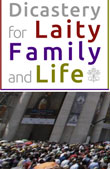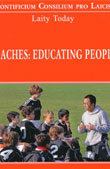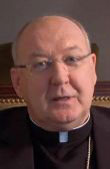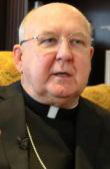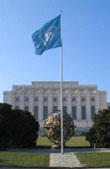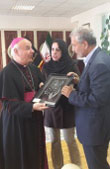The Joint Communiqué of the Pontifical Council for the Family and the Department for External Relations of the Moscow Patriarchate
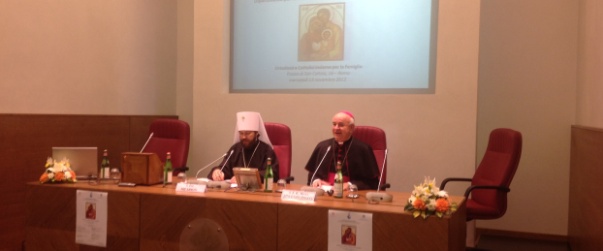
The common Christian witness
The Pontifical Council for the Family and the Department for External Relations of the Moscow Patriarchate hosted on Wednesday, November 13th, 2013, the conference: “Orthodox and Catholics Together for the Family.” The introductory talks were given by the President of the Department for External Relations of the Moscow Patriarchate, Metropolitan Hilarion of Volokolamsk, and by the President of the Pontifical Council for the Family, Archbishop Vincenzo Paglia.
The interventions have confirmed the broad consensus on the main issues concerning the family and life. The participants shared their preoccupation over the situation in which the family finds itself in the midst of the globalized world, a fact which was also underscored several times by the Patriarch of Moscow and All Russia Kirill on December 7th, 2012, during the encounter in Moscow with Archbishop Paglia: “Both Orthodox and Catholics are presently facing disquieting tendencies towards the destruction of the institution of the family in contemporary society, tendencies that many consider not constructive and dangerous.” The participants noted that this conference marked a significant milestone in the commitment of both Churches in the promotion and defense of the family, the “driving force of the world and of history,” as Pope Francis has observed.
Both parties have analyzed the deep crisis that the family is going through today. The hegemony of a culture of individualism and consumerism—which goes hand in hand with the globalization of the market alone—seems, as its first consequence, to be weakening and destroying the family and, along with the family, every stable form of association. Moreover, alternative “family” forms are multiplying. Unfortunately, it’s now taken for granted that individuals can “make a family” in many different ways. What counts—and this is stressed—is “love.” The family is no longer denied, but juxtaposed with new forms of relational experience that are apparently compatible with it, while in fact they unhinge it. We must find clear and convincing responses to the destruction of sexual specificity, proposed by the new gender culture. Marriage, precisely in the union of a man with a woman, incarnates a genuine culture of alterity, without blotting out the differences. This corresponds to the essence of the human being and is Good News for the dechristianized world.
In a society where the number of the elderly is increasing, the relationship between the generations is gaining centrality. This enters into the broad field of the rights of the family, from the rights of children to those of the elderly, the ill, the right to work, to rest and to celebrate.
Thanks to this day of study the common responsibility for presenting marriage and the family as a way of sanctification for Christian couples has also been strengthened. It is necessary to draw from the great treasure of our Churches’ theological, spiritual and cultural wealth, and to offer our Christian witness to the values of marriage and the family in a more effective and topical way.


